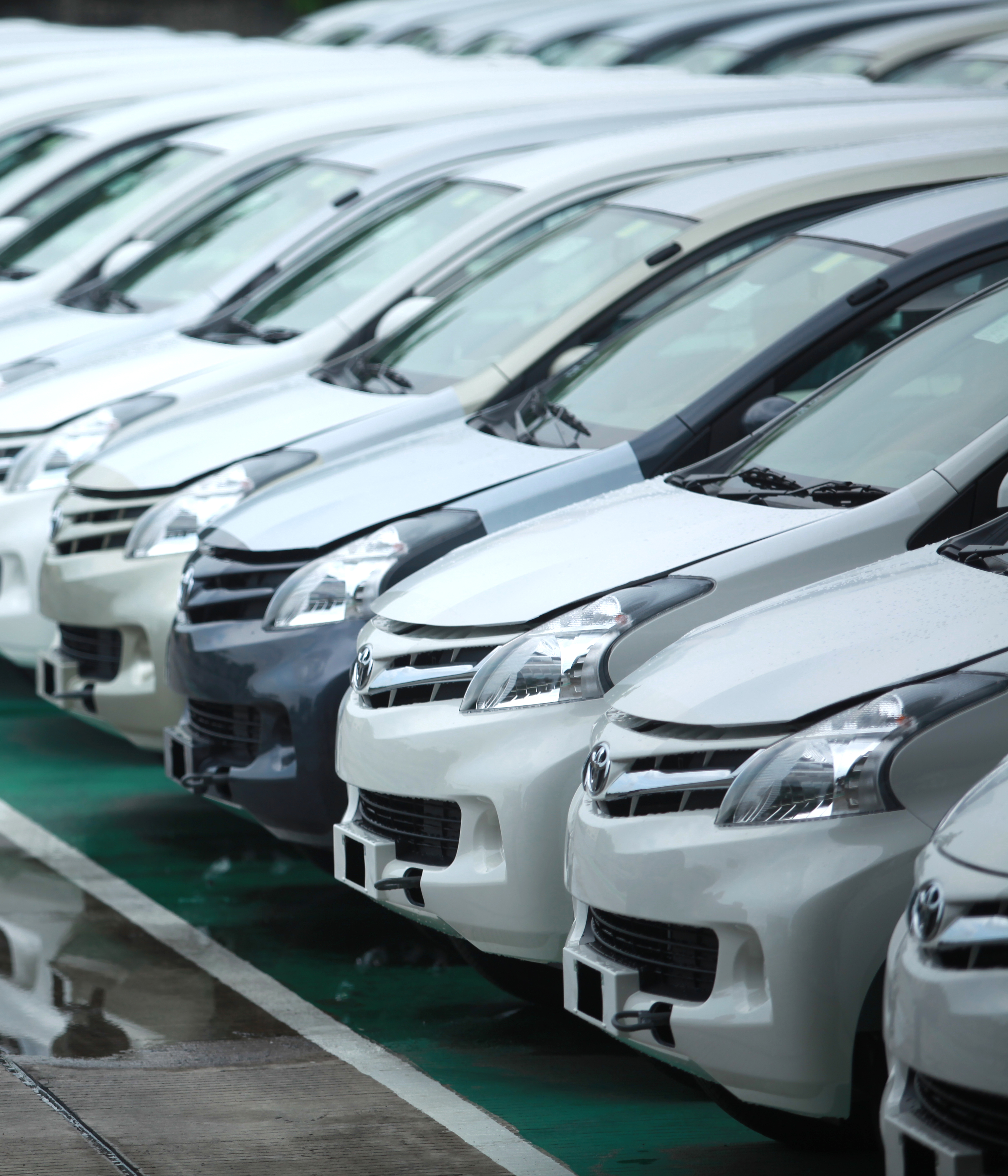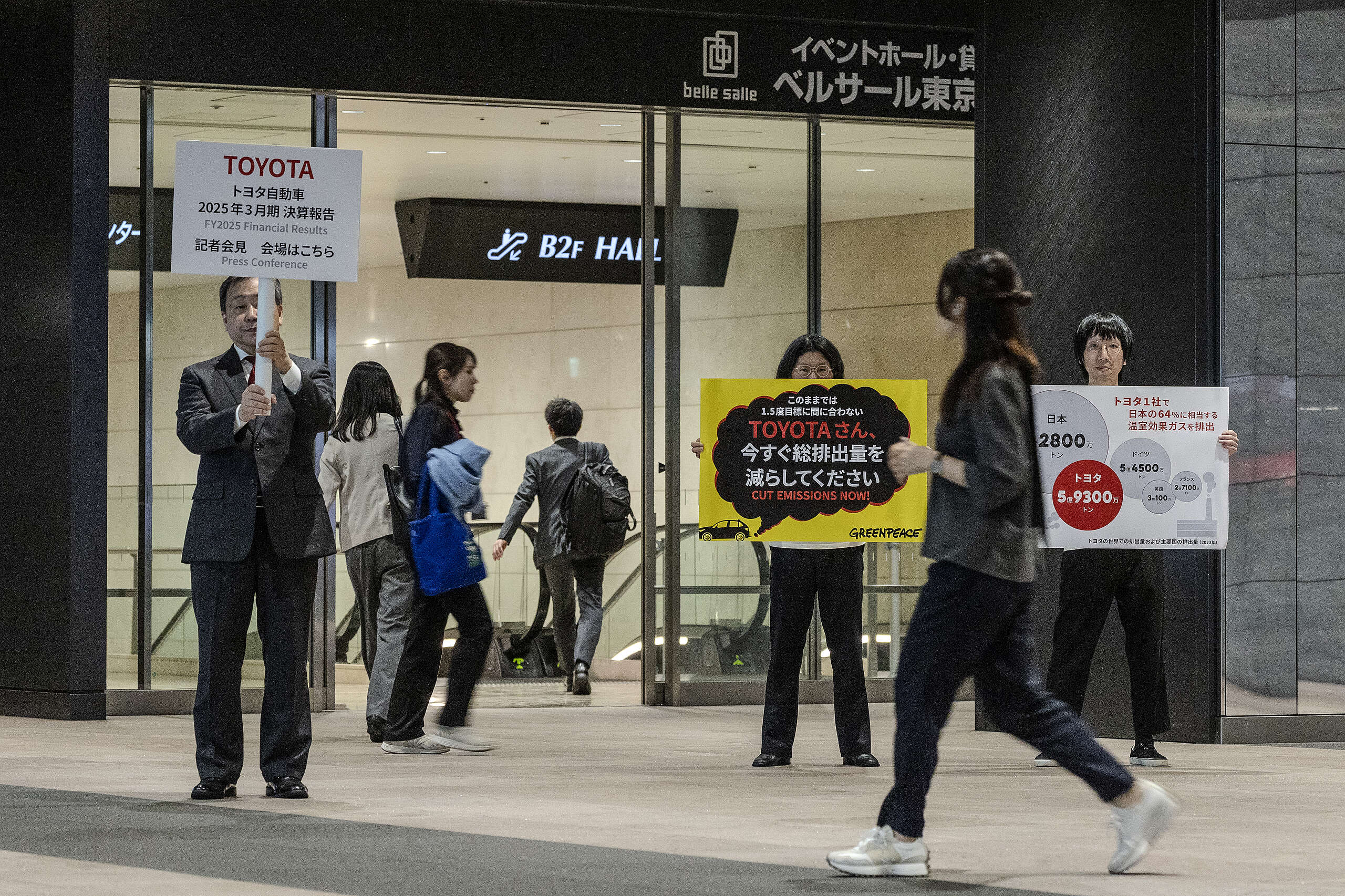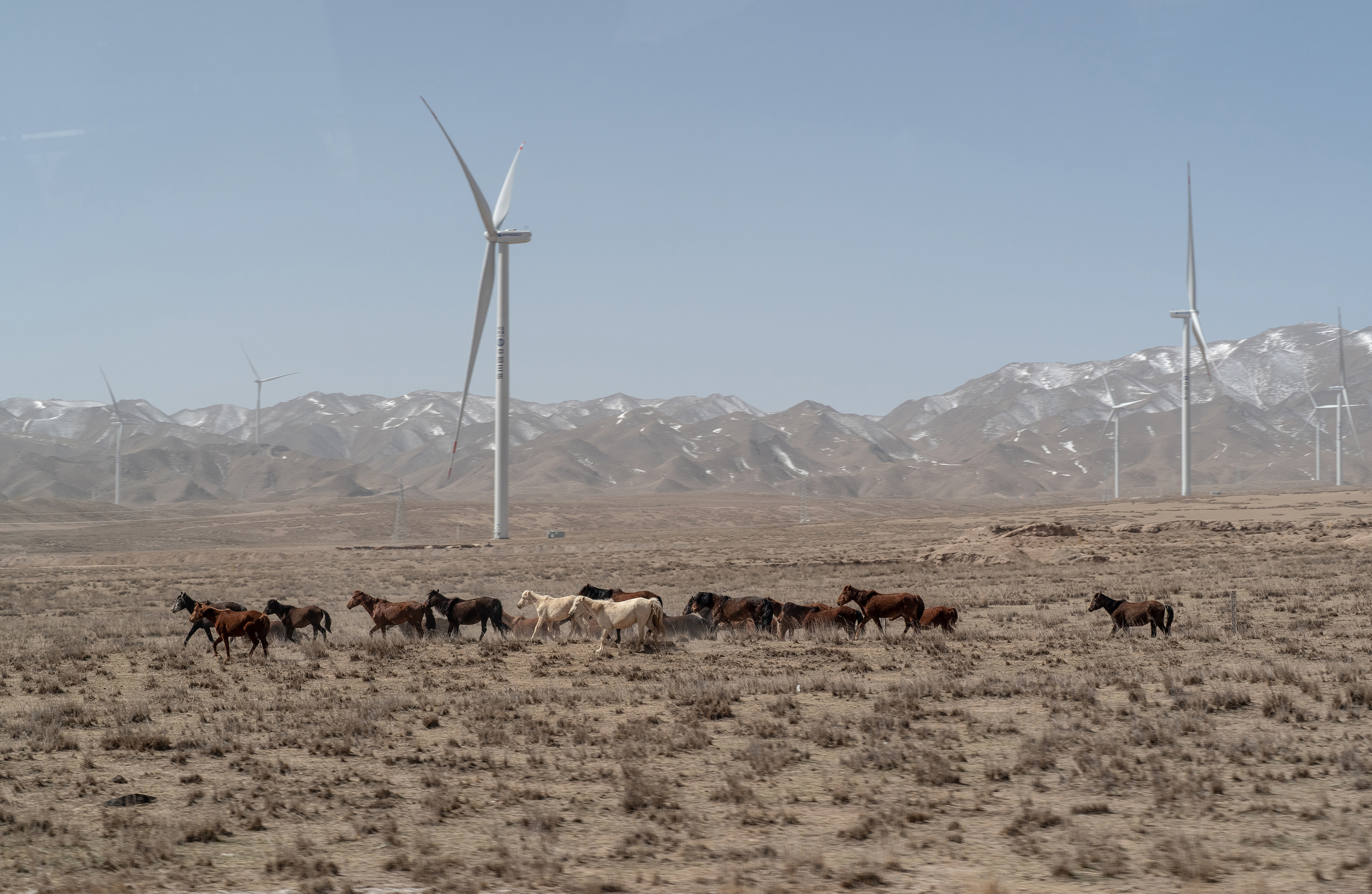SEOUL– The world’s three largest automakers – Toyota, Volkswagen and Hyundai-Kia – each increased their sales of sport utility vehicles (SUVs) by more than 150% over the last decade, according to a new Greenpeace East Asia report. For these automakers, tailpipe emissions from increased SUV sales have more than canceled out climate gains from the transition to electric vehicles (EVs), the research finds.
Erin Choi, Greenpeace East Asia climate and energy campaigner, said:
“Auto giants like Hyundai and Volkswagen like to portray themselves as ‘going green,’ but the trend actually points in the opposite direction. The world’s biggest automakers are charging full speed ahead with SUV manufacturing, pushing the planet further toward climate disaster. SUVs are extremely steel-intensive and require more energy to operate than smaller vehicles. Unfortunately, when it comes to the world’s biggest automakers, any climate gains from the shift to electric vehicles have been offset by soaring emissions from SUVs.
“One of the key issues at the COP28 climate meeting is how to phase out oil and other fossil fuels as quickly as possible. Meanwhile, the world’s auto giants appear oblivious to their climate responsibility and continue to increase demand for oil by transitioning too slowly to electric vehicles and adding more combustion engine SUVs to the road.”
Key findings from the report:
– Over the past decade, the global share of SUV sales more than doubled, from 15.4% of all passenger vehicles in 2013 to 40.8% in 2022. Over its lifetime, an SUV emits approximately 12% more CO2 than a sedan, according to the report.
– Hyundai-Kia, Toyota, Volkswagen, Stellantis and General Motors all increased their SUV sales over the ten-year period ending in 2022. SUV sales by Toyota, Volkswagen and Hyundai-Kia grew by 158.1%, 270.5% and 152.4%, respectively, during the same period.
– Between 2017 and 2022 sales of combustion engine vehicles decreased for Volkswagen and Hyundai-Kia and increased marginally for Toyota. However, during that period, the three automakers’ tailpipe emissions still grew substantially due to rising SUV sales.
– Of the five major automakers included in the study, SUVs made up the highest share of Hyundai-Kia’s sales. SUVs comprised 52.7% of all vehicles sold by Hyundai-Kia in 2022, compared to 19.7% in 2013. In 2022, 82.7% of zero-emission vehicles sold by Hyundai-kia were SUVs.
Greenpeace urges that automakers end the sale of combustion engine vehicles worldwide by 2030 and in Europe by 2028.
“It’s time for the auto industry to stop greenwashing. Hyundai, Volkswagen and other automakers must reduce the size of their SUV fleets at the same time that they electrify. It’s also critical that carmakers at least halve the carbon footprint of their steel supply chain by 2030 and invest in the transition to 100% zero-carbon steel. We are experiencing one of the hottest years in history, and we can’t afford to wait,” said Choi.
Global SUV sales trend for all automakers (2013 to 2022)
SUV sales compared to sales of all vehicles by the top three automakers in 2013 and 2022
| Automaker | Vehicle Type | 2013 | 2022 |
| Toyota | SUV | 1.4 million | 3.6 million |
| All vehicles | 9.0 million | 9.7 million | |
| SUV Ratio | 15.6% | 37.3% | |
| Volkswagen | SUV | 0.9 million | 3.4 million |
| All vehicles | 9.1 million | 7.7 million | |
| SUV Ratio | 10.1% | 44.3% | |
| Hyundai-Kia | SUV | 1.3 million | 3.4 million |
| All vehicles | 6.8 million | 6.4 million | |
| SUV Ratio | 19.7% | 52.7% |
Notes
All sales performance data were extracted from Marklines and retrieved in September 2023. Marklines data might differ from official sales figures provided by the companies. In order to ensure consistency in data sourcing, Marklines data are used for all sales-related evaluations.
Total vehicle sales were used to calculate the number of vehicles on the road by the manufacturer in 2017 and 2022. Researchers chose to use the number of vehicles on the road rather than the number of vehicles sold because it more precisely reflects the actual CO2 road emissions. The data for CO2 emissions by manufacturer is from the U.S. Environmental Protection Agency (EPA).
Sport Utility Vehicles (SUVs) are typically characterized by a higher ground clearance and a larger build compared to standard passenger cars. While the precise definition of an SUV can vary by country or by its purpose, it generally refers to passenger vehicles that incorporate off-road features.
For the purposes of this report, SUVs are defined to encompass crossovers (CUVs), which are relatively smaller SUVs, while excluding multipurpose vehicles (MPVs) and pickup trucks. Data on SUV sales for each manufacturer was collected using criteria provided by Marklines.
Media Contacts:
Erin Newport, International Communications Officer, Greenpeace East Asia (Taipei), +886 958 026 791, [email protected]
Elizabeth Lee, Communications Officer, Greenpeace East Asia (Seoul), +82 10 8394 0206, [email protected]



